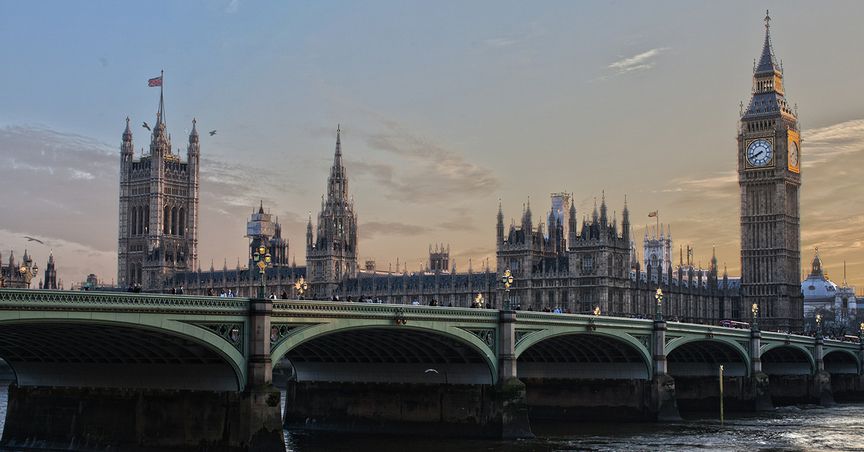Summary
- The British government seems to have lost confidence in the Brexit negotiations that have been going on between the two sides since January this year
- The bone of contention in the negotiations is on two subjects, one of the fishing rights and the other the role of the European Court of Justice
- The collapse of the negotiations would be a major setback for the businesses from both sides
The United Kingdom seems to have lost confidence in the Brexit negotiations that have been going on between the two sides since January this year. After the formal pull out of the UK from the EU on 31 January 2020, both sides had agreed to continue negotiating for a deal that would provide a level playing field to companies on both sides as they had before. The deal which has been labelled as crucial by several industry groups is important as major disruptions in business activity levels may take place leading to catastrophic consequences. The bone of contention in the negotiations is on two subjects, one of the fishing rights and the other the role of the European Court of Justice. Though both sides still have till 31 December 2020 to work out a deal, after which the current continuing EU tariff regulation will cease to apply on the UK, and new tariff regimen will come into place.
The road to Brexit and prime minister Johnson’s Stand on the deal
The conservative party had been an ardent supporter of Britain pulling out of the European Union sighting truncated growth operating under the policies of the European parliament. However, pulling out of the union was easier said than done. Business relations that had been forged across boundaries over a period of forty-seven years could not be torn apart without inflicting massive damages on both sides. Keeping this thing in mind, people on both sides started lobbying for negotiations for a deal that would retain the current free tariff structures and less restriction on movement of goods and people across the borders. However, as time passed these negotiations continued to become acrimonious and leaders on both sides continued to disagree on several topics, making the possibility of arriving at an agreement even more difficult.
Prime Minister Boris Johnson during his first tenure had promised that he would see through the passage of Brexit with or without a deal and would not let the lengthening inconclusive negotiations delay the pullout. In his final days of the first tenure, he negotiated a draft agreement with his EU counterparts and dissolved the parliament and called on the fresh elections. The subsequent elections held in December 2020 gave him the clear majority which he needed to push through his draft deal into law. Since then both sides had agreed to continue negotiation till the end of 2020 to finalize any pending issues, until which the EU tariff regulation would continue to regulate trade between the UK and other EU member countries.
The consequence of a no-deal Brexit
There are several manufacturers and retailers in the UK that are heavily dependent on suppliers from other smaller EU countries who are able to produce goods economically and of high quality that the UK is not able to do domestically. Over the period of years this arrangement has allowed British companies to gain international competitive advantage, but now with the access to the EU market gone British companies will have a tough time pushing through their merchandise in the international markets.
In this regard, there were some companies who went ahead and stared sourcing their required goods from China, which provided them with the same cost competitive advantage as manufacturers in EU but the recent experience of a massive supply chain disruptions arising out of the coronavirus pandemic has brought to the fore the risks of sourcing intermediate goods from far off places.
Thus, if the deal does not go through, manufacturers in the UK will have to develop sources domestically which could be time-consuming as well as expensive, leading to a loss of competitive market advantage in the short run.
The additional complication of the coronavirus pandemic
As if all the complications relating to the smooth passage of Brexit was not enough, the year 2020 so far has been marred by the outbreak of the coronavirus pandemic, which gave an economic jolt to the eurozone countries like they had not experienced in decades. Most of the businesses in the continent who were preparing for the post Brexit business landscape had to now turn their resources towards fighting the pandemic induced slowdown and became even more vulnerable to a post 31 December 2020 market situation.
Most of the countries in the eurozone are expected to go into recession for the year 2020 before being able to make a sharp recovery the following year. Every one of them has billions of pounds of resources committed toward protecting their local economies, and they are also taking additional stimulus measures like tax cuts to help businesses stand back on their feet. Under such circumstances, a new tariff regimen will significantly add to the troubles of the businesses and costs to the country’s exchequers.
The threat of the pandemic has still not subsided and is also expected to continue into the year 2021 when the EU tariff regulation timeline would have already expired. Under such circumstances, the threat of business failures and job losses could see a sharp increase in the UK as the year 2021 dawns.
Conclusion
The situation in the entire eurozone is not conducive for the EU common tariff area regimen to end. It would be in the best interest of everyone if they pooled all their resources towards the fight against the pandemic induced slowdown. There is more risk of business failures on both sides on 31 December 2020 than the risk that existed on 31 January 2020. Negotiators from both sides though would be trying hard to arrive at a deal by the year-end, but the most practical solution to deal with the present situation will be to extend the EU common tariff area regimen by a few more months at least if not more.




